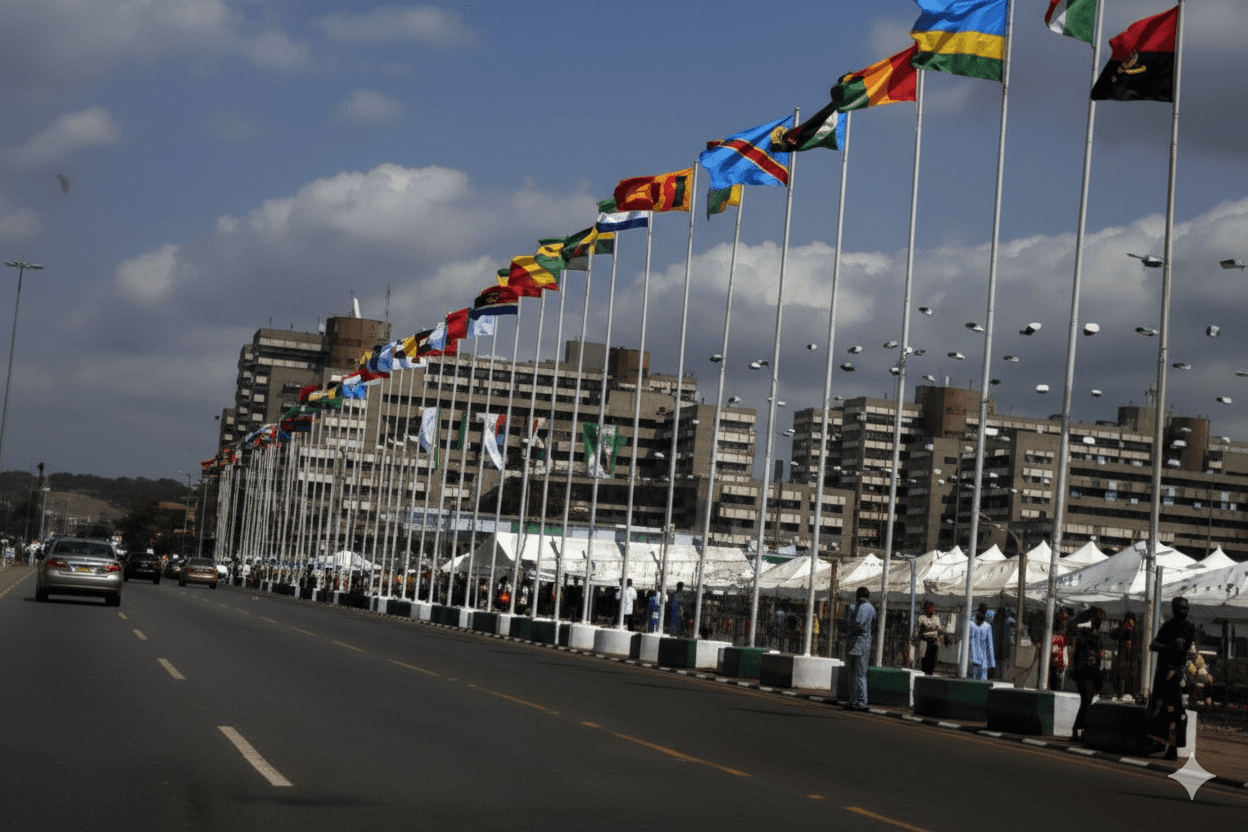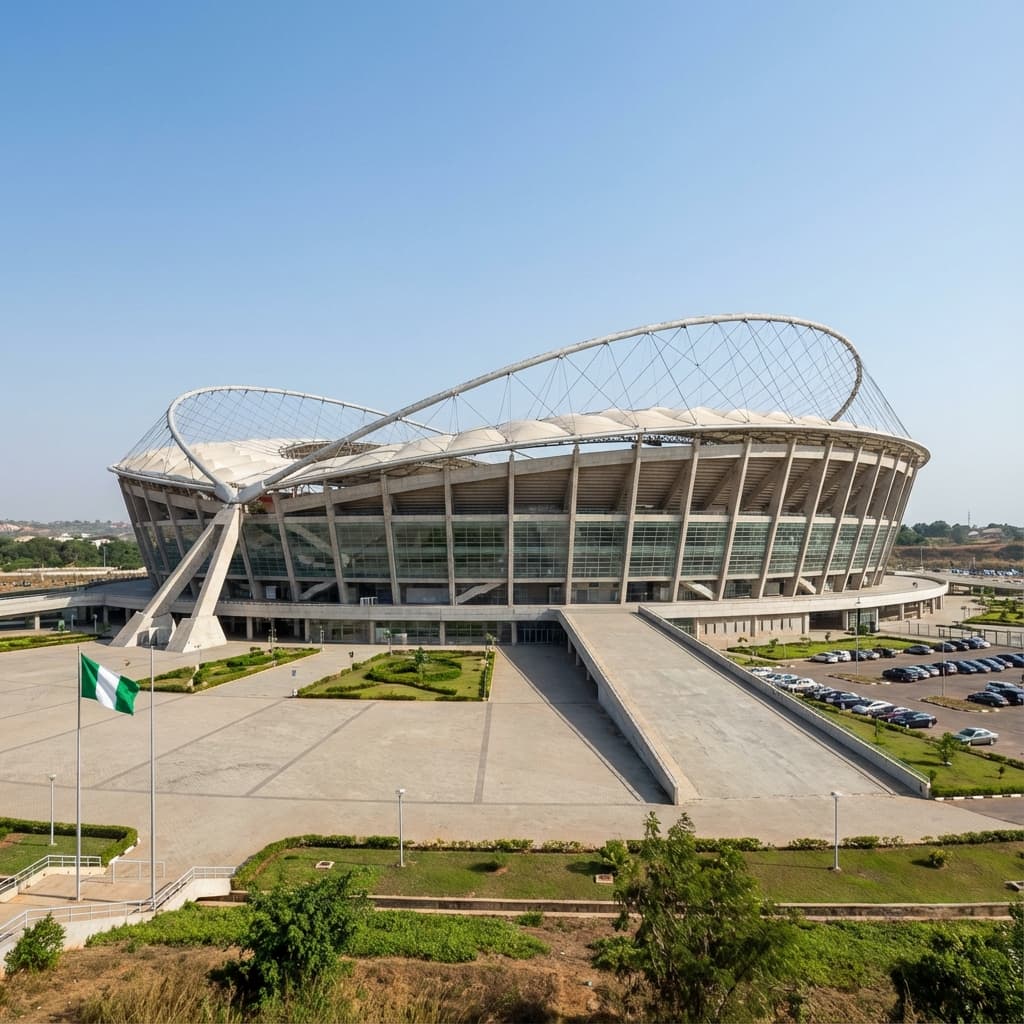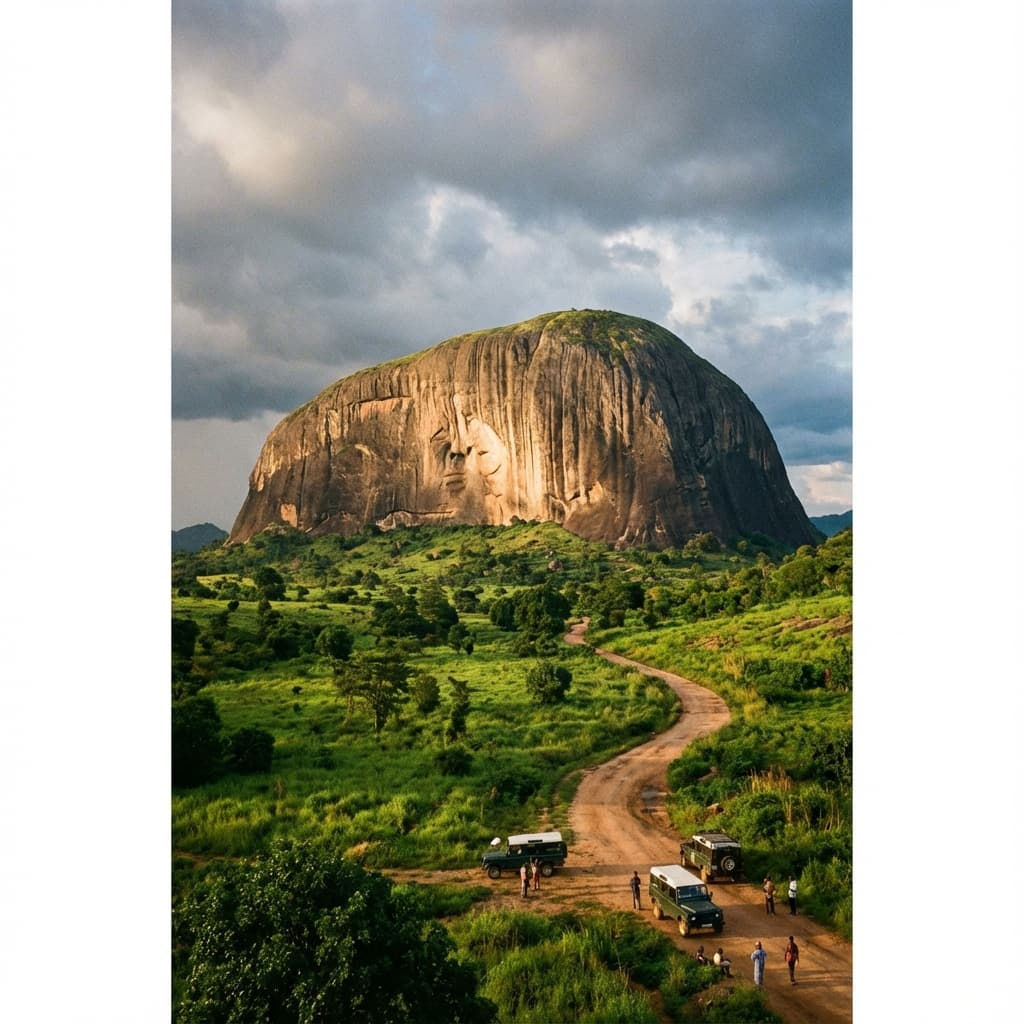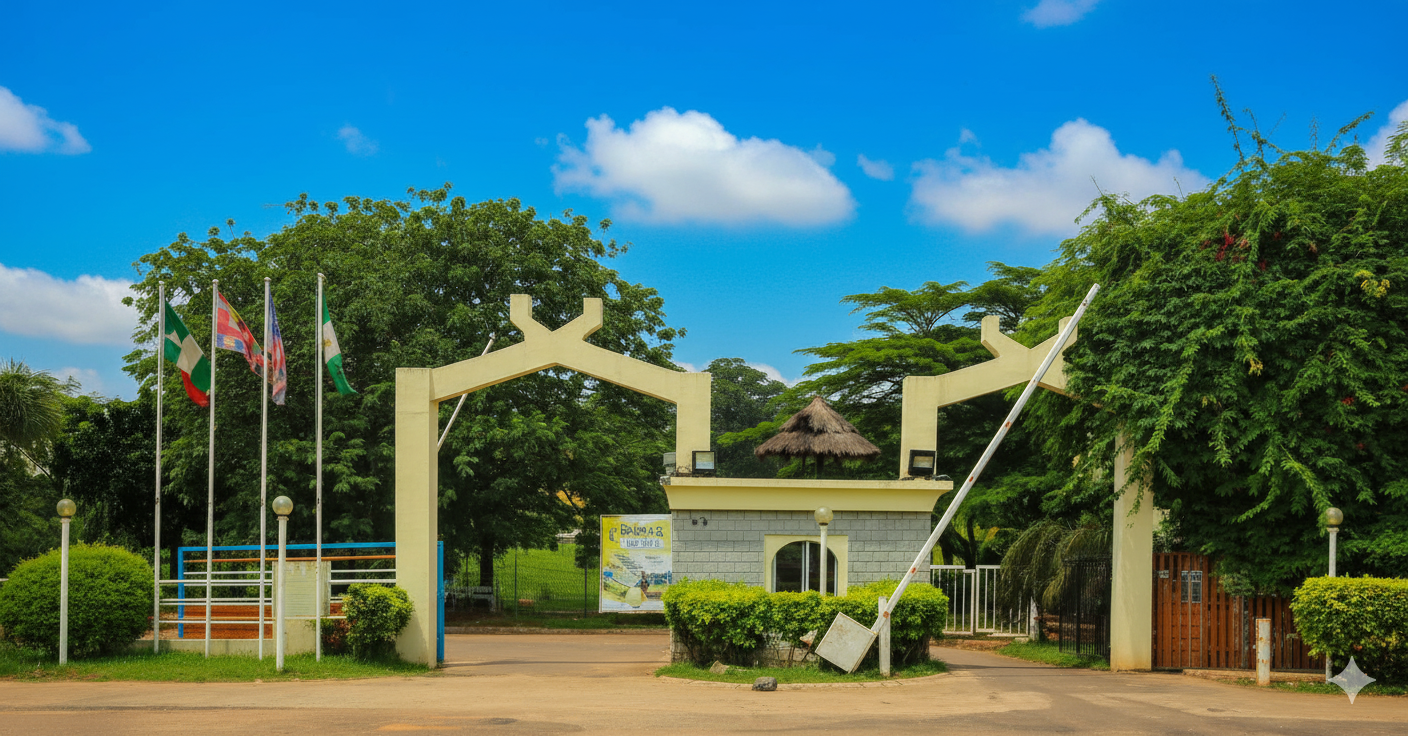National Mosque Abuja: Visitor Guide & History (2025)
Visit the National Mosque Abuja, a stunning Islamic landmark. A 2025 visitor's guide to architecture, access, and cultural significance.

National Mosque Abuja: Nigeria's Premier Islamic Landmark - Complete Visitor Guide 2024
National Mosque Abuja stands as Nigeria's most significant Islamic landmark and spiritual center, serving as the premier destination for Muslim worship, cultural education, and interfaith dialogue. This magnificent architectural masterpiece represents the unity, diversity, and spiritual richness of Nigeria's Muslim community while welcoming visitors from all faiths to appreciate its beauty and significance.
The Historical and Religious Significance of National Mosque
The National Mosque holds profound religious and cultural importance in Nigeria's diverse society:
Religious Significance:
- Premier Islamic center in Nigeria's capital
- Symbol of Muslim unity and community
- Spiritual guidance and religious education
- Interfaith dialogue and understanding
- Cultural preservation of Islamic traditions
National Importance:
- Representation of religious diversity in Nigeria
- Symbol of national unity and tolerance
- Cultural landmark showcasing Islamic architecture
- Tourist attraction promoting cultural understanding
- Educational center for Islamic studies and history
Architectural Marvel and Design Features
Exterior Architecture:
Dome and Minaret Design:
- Central dome with traditional Islamic architecture
- Four minarets representing the cardinal directions
- Golden dome symbolizing spiritual enlightenment
- Traditional geometric patterns and Islamic motifs
- Modern construction with traditional design elements
Building Materials and Construction:
- High-quality materials ensuring longevity
- Traditional Islamic architecture principles
- Modern engineering and construction techniques
- Weather-resistant design for tropical climate
- Accessibility features for all visitors
Interior Design and Features:
Prayer Hall:
- Spacious prayer area accommodating thousands of worshippers
- Traditional Islamic decoration and calligraphy
- Modern amenities for comfort and convenience
- Acoustic design for clear sound during prayers
- Ventilation systems for comfortable worship
Educational and Community Facilities:
- Library and study areas for Islamic education
- Community meeting rooms for religious discussions
- Educational programs for children and adults
- Cultural events and religious celebrations
- Interfaith dialogue programs and activities
Visiting National Mosque Abuja
Location and Access:
- Address: Central Area, Abuja, FCT, Nigeria
- GPS Coordinates: 9.0579°N, 7.4951°E
- Accessibility: Easily accessible from all parts of Abuja
- Parking: Available for visitors and worshippers
- Public Transport: Multiple bus routes and taxi services
Visiting Hours and Guidelines:
Regular Visiting Hours:
- Daily: 6:00 AM - 10:00 PM
- Prayer times: Open for all five daily prayers
- Friday prayers: Special extended hours
- Ramadan: Extended hours during holy month
- Special events: Varies according to religious calendar
Visitor Guidelines:
- Respectful attire required for all visitors
- Remove shoes before entering prayer areas
- Maintain quiet and respectful behavior
- Follow photography guidelines and restrictions
- Respect prayer times and religious activities
What to Expect During Visits:
For Muslim Visitors:
- Prayer facilities and worship areas
- Religious education and spiritual guidance
- Community activities and social programs
- Cultural events and religious celebrations
- Educational resources and Islamic literature
For Non-Muslim Visitors:
- Educational tours about Islamic culture and architecture
- Cultural appreciation of Islamic art and design
- Interfaith dialogue and understanding programs
- Photography opportunities (with permission)
- Respectful observation of religious practices
Religious Services and Activities
Daily Worship:
Five Daily Prayers:
- Fajr (Dawn): Early morning prayer
- Dhuhr (Noon): Midday prayer
- Asr (Afternoon): Afternoon prayer
- Maghrib (Sunset): Evening prayer
- Isha (Night): Night prayer
Friday Congregational Prayer:
- Jumu'ah prayer - Weekly congregational prayer
- Khutbah (Sermon) - Religious guidance and education
- Community gathering and social interaction
- Special programs and announcements
- Extended community activities
Special Religious Events:
Ramadan Activities:
- Iftar (Breaking fast) community meals
- Taraweeh prayers - Special night prayers
- Quran recitation and religious education
- Community iftar and social gatherings
- Charity programs and community service
Eid Celebrations:
- Eid al-Fitr - End of Ramadan celebration
- Eid al-Adha - Festival of Sacrifice
- Special prayers and religious services
- Community celebrations and social events
- Cultural programs and traditional activities
Educational and Cultural Programs
Islamic Education:
Religious Education:
- Quran classes for children and adults
- Arabic language instruction and learning
- Islamic history and cultural education
- Religious guidance and spiritual counseling
- Community education and awareness programs
Cultural Programs:
- Islamic art and calligraphy workshops
- Traditional music and cultural performances
- Community events and social gatherings
- Interfaith dialogue and understanding programs
- Cultural exchange and international programs
Community Services:
Social Programs:
- Community support and assistance programs
- Charity work and social service initiatives
- Youth programs and educational activities
- Family counseling and support services
- Community development and engagement programs
Interfaith Activities:
- Interfaith dialogue and understanding programs
- Community outreach and engagement
- Cultural exchange and educational programs
- Religious tolerance and harmony initiatives
- Community service and volunteer opportunities
Architecture and Art Appreciation
Islamic Art and Design:
Calligraphy and Decoration:
- Arabic calligraphy and Islamic script
- Geometric patterns and traditional designs
- Ornamental decoration and artistic elements
- Cultural symbols and religious motifs
- Traditional craftsmanship and artistic excellence
Architectural Features:
- Dome construction and engineering marvels
- Minaret design and traditional elements
- Prayer hall layout and functional design
- Acoustic design for worship and education
- Lighting and ventilation for comfort and ambiance
Photography and Documentation:
Photography Guidelines:
- Respectful photography of architectural features
- Permission required for interior photography
- Respect prayer times and religious activities
- Follow guidelines for respectful documentation
- Educational purposes and cultural appreciation
Best Photography Spots:
- Exterior views of dome and minarets
- Architectural details and decorative elements
- Garden areas and surrounding landscape
- Entrance areas and traditional design features
- Sunset and sunrise views with dramatic lighting
Nearby Attractions and Landmarks
Religious and Cultural Sites:
- Nigerian National Christian Centre - Interfaith dialogue partner
- Aso Rock - Presidential and government area
- Eagle Square - National ceremonial center
- Millennium Park - Largest public park
- Abuja City Gate - Historic entrance to the city
Government and Administrative:
- Presidential Villa - Official government residence
- National Assembly Complex - Legislative center
- Supreme Court - Judicial headquarters
- Federal Secretariat - Administrative offices
- Ministry buildings - Government departments
Shopping and Dining:
- Central Business District - Commercial and shopping area
- Wuse Market - Traditional market and crafts
- Jabi Lake Mall - Modern shopping and entertainment
- Local restaurants serving authentic Nigerian cuisine
- Cultural centers and traditional venues
Practical Information for Visitors
Admission and Access:
- Free admission for all visitors
- Guided tours available by arrangement
- Educational programs for groups and schools
- Accessibility for persons with disabilities
- Multilingual support for international visitors
What to Bring:
- Respectful attire appropriate for religious site
- Comfortable walking shoes for exploration
- Water bottle and personal items
- Camera equipment (with permission)
- Identification for security purposes
Safety and Security:
- Security presence for visitor safety
- Bag checks and security screening
- Emergency procedures and safety protocols
- Medical facilities and first aid services
- Crowd management during special events
Cultural Significance and Community Impact
National Unity:
- Symbol of religious diversity in Nigeria
- Interfaith dialogue and understanding
- Cultural preservation and education
- Community engagement and social programs
- International recognition as cultural landmark
Educational Value:
- Islamic education and religious studies
- Cultural appreciation and understanding
- Historical significance and national heritage
- Architectural education and design appreciation
- Community development and social engagement
Frequently Asked Questions
Is the National Mosque open to non-Muslim visitors?
Yes, the National Mosque welcomes visitors of all faiths. However, visitors should dress respectfully and follow all guidelines for appropriate behavior.
What should I wear when visiting the National Mosque?
Visitors should wear modest, respectful clothing that covers arms and legs. Women may be required to cover their heads in certain areas.
Can I take photographs inside the mosque?
Photography may be restricted in certain areas, especially during prayer times. Always ask for permission and follow guidelines for respectful photography.
Are there guided tours available?
Yes, guided tours are available by arrangement. Contact the mosque administration for tour schedules and booking information.
What are the prayer times?
Prayer times vary throughout the year. Check with the mosque for current prayer schedules, or look for prayer time announcements in the area.
Is the mosque accessible for people with disabilities?
Yes, the National Mosque has accessibility features for persons with disabilities, including wheelchair access and accessible facilities.
Conclusion
National Mosque Abuja stands as a magnificent testament to Nigeria's religious diversity, cultural richness, and architectural excellence. As the premier Islamic landmark in Nigeria's capital, it serves not only as a place of worship but also as a center for education, cultural exchange, and interfaith dialogue.
Whether you're a Muslim seeking spiritual guidance, a visitor interested in Islamic culture and architecture, or someone looking to understand Nigeria's religious diversity, the National Mosque offers an enriching experience that showcases the beauty, wisdom, and cultural significance of Islamic tradition in Nigeria.
Plan your visit to National Mosque Abuja today and discover the spiritual heart of Nigeria's Muslim community and the architectural beauty that represents centuries of Islamic culture and tradition.
Last updated: December 2024




